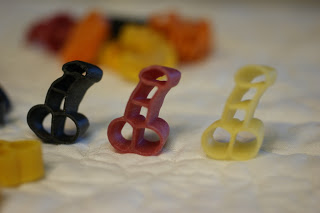Smooth jazz from The Manhattan Transfer
Nice!
Nice!
The 1970s were great*. Cooking (since you're probably interested if you're here) was all about Fanny Craddock, The Galloping Gourmet and the new CILF on the scene, Delia Smith. Films mirrored these culinary giants of the small screen in the shape of Alien, Jaws and Princess Leia in Star Wars (or Star Wars Episode VII: A New Hope as it's known now).
Music had a massive shift also, with disco and, most significantly, the advent of punk happening in this decade. It needs stating, though, that while there was a revolution going on in popular music, there was still a major stream of less challenging fare flooding the UK top 40. There was a slew of easy listening and novelty songs throughout the decade, from the cliche-ridden Europop celebration of the package tour to Spain, Sylvia's "Y Viva España"; to the Rupert Holmes cheesy ballad telling the story of a bored married bloke who replies to an ad in a lonely hearts column in order to have an affair, but with an obvious twist, the Piña Colada song. Another one was Chanson D'Amour by The Manhattan Transfer as seen in the video at the top of the page. The latter is a piece of light jazz which includes the actual lyric "Rat-ta-tat-ta-tat". However, as anodyne as that song is, that lyric starts running untrammeled through your head as soon as you hear the name ratatouille. Less ear worm and more ear rat, or maybe it's just me on that. I can guarantee, however, that, if you know the song, the very fact that I've mentioned it means that the tune will now be in your head for at least the next couple of hours. You're welcome.
70s TV chefs and iconic 70s movies. The similarities are mindblowing!
Left to right, top to bottom Fanny Craddock; HR Giger's Alien from the Ridley Scott movie; Graham Kerr, the galloping Gourmet; Jaws; Delia Smith; Carrie Fisher as Star Wars' Princess Leia. Coincidence? I don't think so!
Ratatouille is a classic vegetable stew from Provence and is best described as pure sunshine in a pot. Fresh aubergines, peppers, courgette and tomatoes, they're all there. As a meat free meal it's a great way to use the fresh produce you get in the summer and it tastes fucking amazing, especially if it's with some fresh, crusty bread.
*They weren't. They were pretty shit. We had the Three Day Week. We had Baader-Meinhof. We had flares and wing collars (see here for my take on this). The Cold War was still quietly raging and virtually nobody in the UK had even heard of couscous, let alone eaten it.
TIMING
Preparation: 15 minutes
Cooking: 60 minutes
INGREDIENTS
4 tbsp olive oil
1 onion, chopped
4 cloves of garlic, crushed
1 aubergine, cut into 2cm dice
1 courgette, sliced into 1cm rounds
1 yellow pepper, cored, seeded and chopped into 2cm squares
1 red pepper, cored, seeded and chopped into 2cm squares
4 medium-large tomatoes, skinned and chopped
1 tbsp tomato puree
1 tbsp balsamic vinegar
1 tsp sugar
salt and pepper to taste
handful of basil leaves
Chopped and ready to cook
RECIPE
Heat the oil in a pan and gently fry the onion and garlic for 10 minutes.
Add the aubergine and fry for 10 more minutes.
Throw in the courgette and fry for another 10 minutes.
Add the peppers and fry for another 10 minutes.
Stir in the tomatoes, balsamic vinegar, tomato puree plus salt and pepper to taste before adding 100ml water.
Bring to the boil, cover and simmer for 20-30 minutes (until the vegetables are tender).
I smell a rat
And it smells fantastic
And it smells fantastic
Makes plenty for a big bowlful each for two people plus a decent lunch with the leftovers.
Serve with fresh bread.
Ready to eat
Just add bread
NOTES
Big, ripe tomatoes work best in this.
Other herbs would work well in this, like oregano or (sparingly) thyme. The fresh basil is sublime, however.
As I mentioned, this dish is from Provence which became the Nirvana favoured by the British middle classes in the late 80s/early 90s, thanks in main to the book A Year in Provence by Peter Mayle and the subsequent TV mini-series based upon it. It spawned a load of imitators as people with more money than sense followed through on their French rural wank fantasy, with often limited success and financial insecurity, the gullible cons de chez con, as they might say in France.
There is a little known incident on a teatime programme called Nationwide in the UK which had a cooking piece presented by Fanny Craddock in which she was making meringues. When this piece was finished, the anchor man of the programme, addressing the viewers, said "And I hope all your meringues turn out like Fanny's"
The most famous version of Chanson D'Amour is the one I put at the head of this post. However, this is not the best. That belongs to the version in the video below, as perfomed by the Muppets, which is actually sublime.
The Muppets do Chanson D'Aamour
They weren't only just about mna mna
They weren't only just about mna mna



















